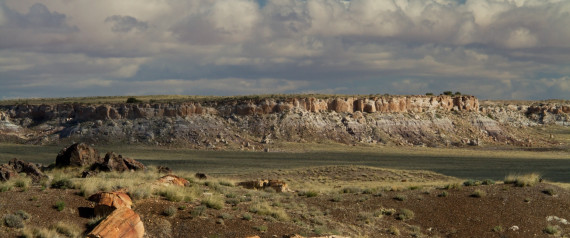To End Poverty, Act on Climate
Kathy Calvin
Climate change threatens to undermine the United Nations’ progress in both of its critical missions — peacekeeping and development: Hardship often leads to conflict, and the worsening impacts of climate change are causing hardship. That is what makes the UN Climate Summit on September 23 so important.
Our development investments will fail if farmers no longer get rain or if floods wipe out their village; if ocean acidification decimate the fisheries on which coastal communities rely for their food and livelihoods; and if rising temperatures cause malaria and other vector-borne diseases to increase and spread to new areas.
Some argue that we need to address poverty first and worry about climate change later. This is just plain wrong. As UN Secretary-General Ban Ki-moon says, “Saving our planet, lifting people out of poverty, advancing economic growth — these are one and the same fight.”
Or, as his friend and colleague, World Bank President Jim Yong Kim, has put it: “Climate change can reverse hard-won development gains and could stop our efforts to end poverty completely. We can’t end poverty unless we take serious steps to protect our planet.”
The UN General Assembly is now working on a new set of global goals to replace the Millennium Development Goals — the world’s “to-do list” to fight poverty — which will expire next year. This time they will be called Sustainable Development Goals — and concern about climate change runs right through them.
People and the planet must be at the heart of this new global agenda. As the SDGs are finalized over the coming year, we must ensure that they are ambitious in addressing climate, development, and sustainability.
More than 25 years ago, Gro Harlem Brundtland — Norway’s first female Prime Minister and later the first female head of the World Health Organization — led a UN commission that defined “sustainable development” as “development that meets the needs of the present without compromising the ability of future generations to meet their own needs.” As a physician, Dr. Brundtland understood more than most people the relationship between health, well-being, and the environment.
In New York on September 21, concerned citizens are planning the largest climate march ever to call for stronger action by national governments. Two days later, the Climate Summit will bring together world leaders to discuss how best to accelerate progress in concrete, tangible ways. Government leaders will be joined by CEOs, UN officials, and non-governmental voices to highlight existing and new efforts to drive down global emissions and strengthen resilience — in areas such as energy, cities, agriculture, forests, financing, short-lived pollutants, and transportation.
The good news is that we have solutions in hand today that improve public health, spur economic growth, and create stronger communities. For example:
- Energy-efficient technologies save energy and money for consumers;
- Inexpensive solar lamps enable children to study at night and entrepreneurs to keep their shops open, even if they’re nowhere near a power grid;
- Renewable energy and efficiency projects are creating hundreds of thousands of new jobs; and
- Clean cookstoves are helping mothers breathe cleaner air and free up time for activities that bring in a little income.
By promoting immediate action, the Summit will help show that the goal of limiting the increase in global temperatures to 2 degrees Celsius is not only achievable, but will lead to a cleaner, more sustainable, and more prosperous world. Indeed, our founder and Board Chair, Ted Turner, calls it the greatest economic opportunity of the 21st century.
The Climate Summit and a new set of global goals for development and sustainability are two critical opportunities we can’t afford to waste. We can be the generation that ends poverty while protecting the planet, but to do it, we must come together and act decisively. We will all feel the impacts of what we do or do not do on climate change — but the lives and well-being of the world’s poorest will depend on it.
This post is part of a month-long series produced by The Huffington Post in conjunction with a variety of events being held in September recognizing the threats posed by climate change. Those events include the UN’s Climate Summit 2014 (to be held Sept. 23, 2014, at UN headquarters in New York) and Climate Week NYC (Sept. 22-28, 2014, throughout New York City). To see all the posts in the series, read here.

